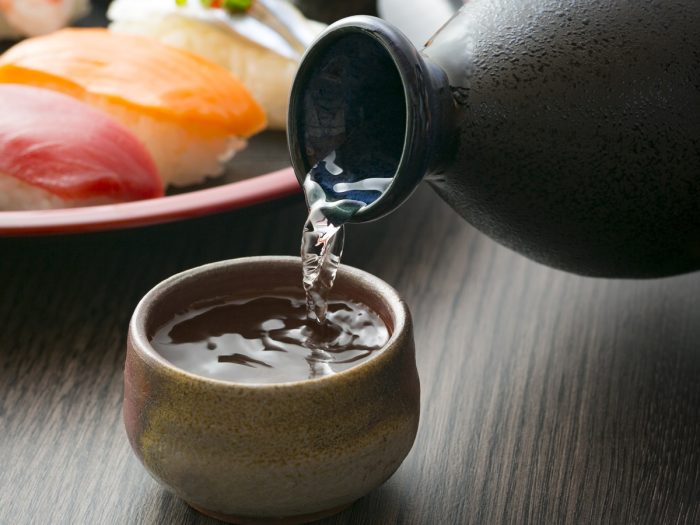There is a surprisingly good range of vermouth substitutes available in the market and you can choose one, depending on the recipe you are trying.
Vermouth Substitutes
Vermouth is an interesting and historically significant wine with numerous positive attributes. However, outside of Europe, it can be hard to find and not everyone keeps a bottle in stock. Luckily, there is a range of substitutes for this fortified and aromatic wine, including dry and sweet sherry, dry white wine, sake, lemon juice, vinegar, white grape juice, chicken, turkey, and vegetable broth. [1]
Dry Sherry
Dry sherry is a good replacement for dry vermouth in cocktails, while sweet sherry is a good replacement for sweet vermouth.

Sake can be substituted for vermouth in cocktails like martinis. Photo Credit: Shutterstock
Dry White Wine
Many people are more likely to have a bottle of dry white wine stored away than they are to have a bottle of vermouth, making white wine an easily accessible alternative. Sauvignon blanc is likely your best choice. [2]
Sake
Sake is also a good substitute for vermouth in a dry and crisp martini.
Lemon Juice
Lemon juice nicely mirrors the acidity that dry vermouth adds to a dish, but it’s best to use half the amount of lemon juice as advised for vermouth and add more, carefully, based on your own flavor preferences. Other citrus juices are to be avoided due to their excessive flavor.
Vinegar
Similar to lemon juice, vinegar can imitate the acidic flavor of dry vermouth. You might consider white wine, balsamic, or red wine vinegar, depending on the recipe in question. [3]
White Grape Juice
It is recommended to start with half the amount of grape juice as stated in the recipe for dry vermouth and supplement it with spices or salt to counteract the sweet edge.
Chicken, Turkey or Vegetable Broth
A strong broth can be an excellent alcohol-free alternative to vermouth. For an acidity level that is basically identical to vermouth, you can try mixing broth and lemon juice together as a substitute.
Word of Caution: The risks involved with drinking excessive alcohol can be short term such as violence and injuries to long-term health risks such as chronic diseases. According to the Centers for Disease Control and Prevention, people who should not drink alcohol include women who are pregnant, individuals younger than 21 years of age, and people who are recovering from alcoholism or cannot control the amount they drink. Also, it should be avoided by people who are planning to drive or any other activity that required focus and skill. [4]
Also, cooking with alcoholic beverages results in only some loss of alcohol content. Foods baked or simmered in alcohol can retain anywhere from 4 percent to 85 percent of the alcohol, according to a study by the U.S. Department of Agriculture’s Nutrient Data lab. [5]
